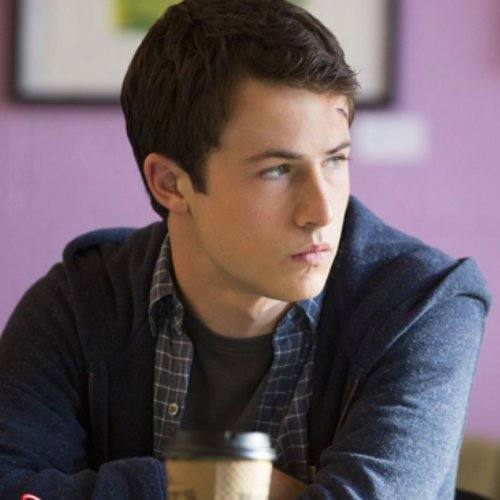
When I first started watching 13 Reasons Why on Netflix, I was afraid I was going to hate it. It just gave off such an after school special vibe, right down to the way the “regular guy” protagonist Clay gels his hair into a triangle.

The initial few lines are so awkward that it reminded me of the pilot of The Secret Life of the American Teenager, an ABC Family drama that brought us Shailene Woodley and her clay-eating, VJ-sunning ways.

I didn’t want to be the one person that hated the serious show that earnestly brought to light Real Issues that Teens Face, namely suicide, bullying and sexual assault. Lucky for me, 13 Reasons Why quickly got better once it turned the camera away from the boys harassing one another and toward the girls, who are painted with much finer strokes. When Hannah and her friend Jessica discuss what happens when your girl crush on ScarJo gets misconstrued on Facebook, it started to seem more like a comedy and less like a cautionary tale.
These well-written moments of levity and snappy humor would continue to make the show incredibly watchable, despite the gravity of its subject matter. The problem is, they tend to happen only when the men are offscreen. While a couple teenage boy characters are well-written, most are brutish, half-baked and get few redeeming moments. The most ill-conceived character was Tony, who seems to be a collection of outdated Italian stereotypes. (Do TV writers seriously think kids in 2017 roll around with perfectly coiffed hair and bomber jackets, regularly stopping to polish their bright red vintage cars? Or maybe they do and I’m just horribly out of touch?)

The show also signposts “big reveals” a little too obviously. (For example, anyone who’s seen American Beauty knows something fucked up is going to happen with the kid who’s forced to call his dad “sir.”)
On a good, note, almost every actor in the ensemble is refreshingly unknown and talented. I even came to like the actor who played Clay.
Overall, the show succeeded in making me ask myself a lot of questions. For example:
-Is being a teenager a lot harder now that kids have phones and social media? I had AIM chat, MySpace and a Nokia phone. How does today’s technology make bullying worse? Were kids at my school getting cyberbullied, but we just didn’t know what to call it yet?
-Do some girls have a certain undefined essence that gets them chosen by bullies or defined by their sexuality? And if so, what is it? Being popular, having a certain type of body? This seems to be what happens to Hannah. I ended up having an interesting discussion with my sister about this.
-What can parents do to help their kids deal with what seems like an inevitably horrifying part of high school today? Can they prepare them for bullying somehow? Can they teach their sons about consent? I felt old because I kept thinking about the show from this perspective.
The series itself ends on a cliffhanger, leaving it open to a season two. Will I watch? Definitely.
